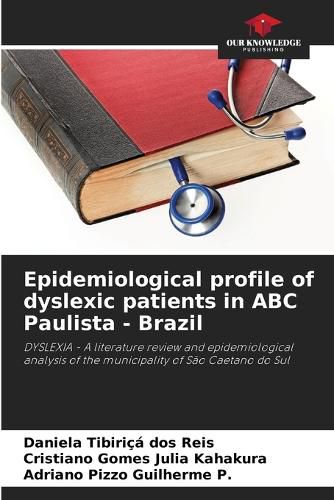Readings Newsletter
Become a Readings Member to make your shopping experience even easier.
Sign in or sign up for free!
You’re not far away from qualifying for FREE standard shipping within Australia
You’ve qualified for FREE standard shipping within Australia
The cart is loading…






Dyslexia is a disorder that causes difficulty in reading and also compromises written language. Studies show that dyslexia has genetic characteristics, with heredity in between 23 and 65% of cases. Dyslexia affects between 5-17% of schoolchildren. The first description of this condition dates back to 1896 and was described by the English neurologist Pringle Morgan, who named it congenital verbal blindness. Since then, various theories have been put forward about the origin of this disorder, the most widely accepted today being the neurobiological cause. The Brazilian Dyslexia Association (ABD), as well as the International Dyslexia Association (IDA) and the National Institute of Child Health and Human Development (NICHD), define dyslexia as follows: "a specific learning disorder, of neurobiological origin, characterized by difficulties in accurate and/or fluent word recognition, decoding skills and spelling. These difficulties usually result from a deficit in the phonological component of language and are unexpected in relation to age and other cognitive abilities."
$9.00 standard shipping within Australia
FREE standard shipping within Australia for orders over $100.00
Express & International shipping calculated at checkout
Dyslexia is a disorder that causes difficulty in reading and also compromises written language. Studies show that dyslexia has genetic characteristics, with heredity in between 23 and 65% of cases. Dyslexia affects between 5-17% of schoolchildren. The first description of this condition dates back to 1896 and was described by the English neurologist Pringle Morgan, who named it congenital verbal blindness. Since then, various theories have been put forward about the origin of this disorder, the most widely accepted today being the neurobiological cause. The Brazilian Dyslexia Association (ABD), as well as the International Dyslexia Association (IDA) and the National Institute of Child Health and Human Development (NICHD), define dyslexia as follows: "a specific learning disorder, of neurobiological origin, characterized by difficulties in accurate and/or fluent word recognition, decoding skills and spelling. These difficulties usually result from a deficit in the phonological component of language and are unexpected in relation to age and other cognitive abilities."